Regenerative Empathy
Agriculture and Rhizosphere
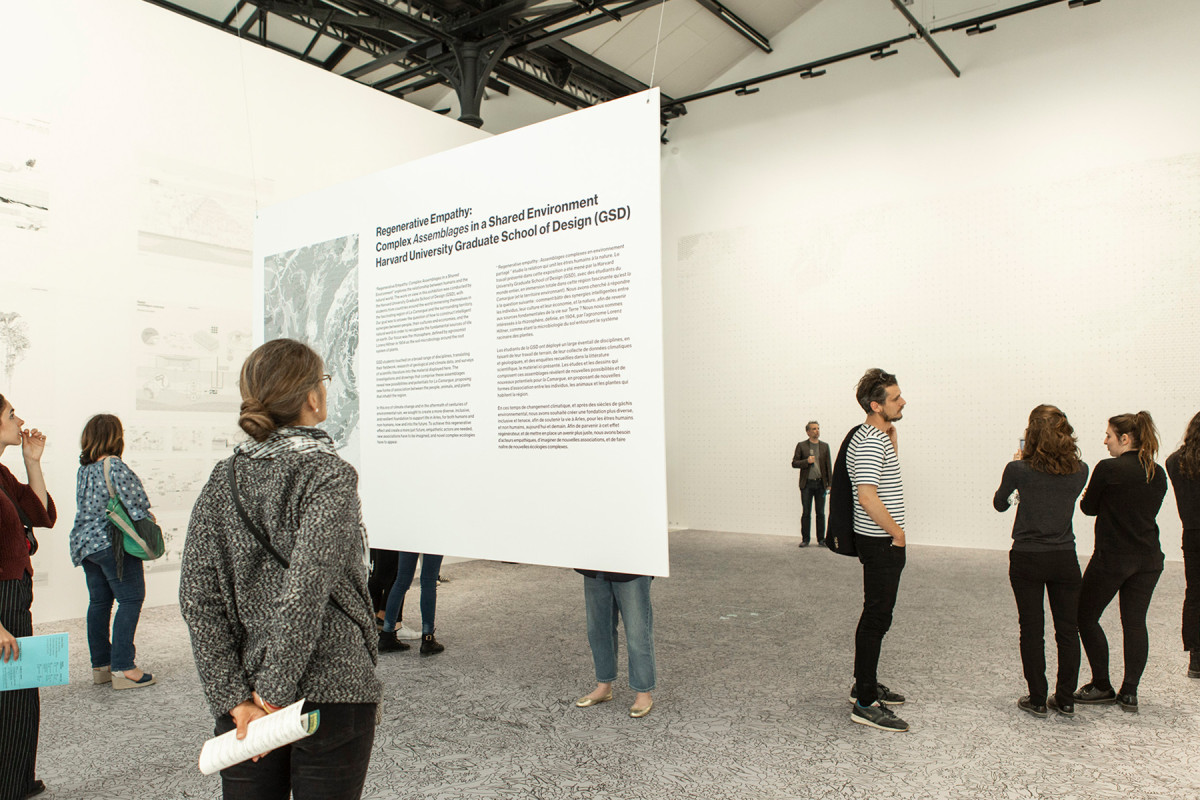
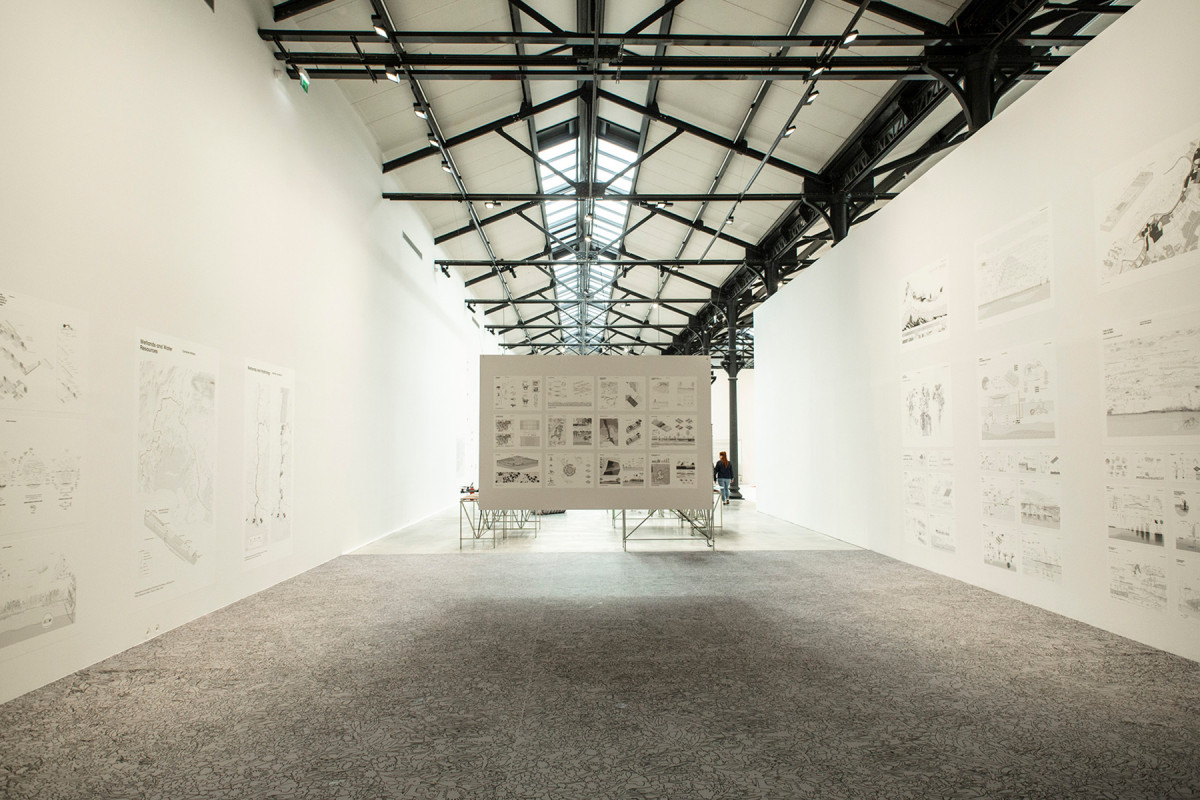
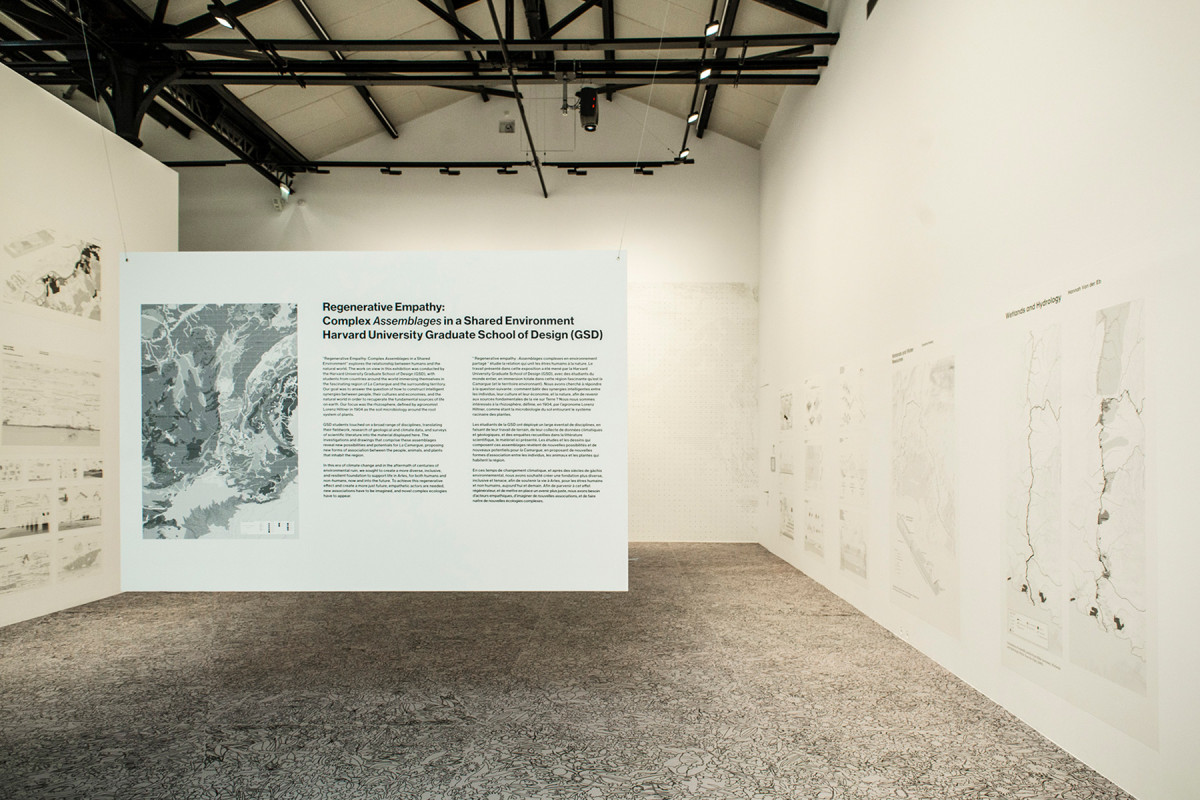
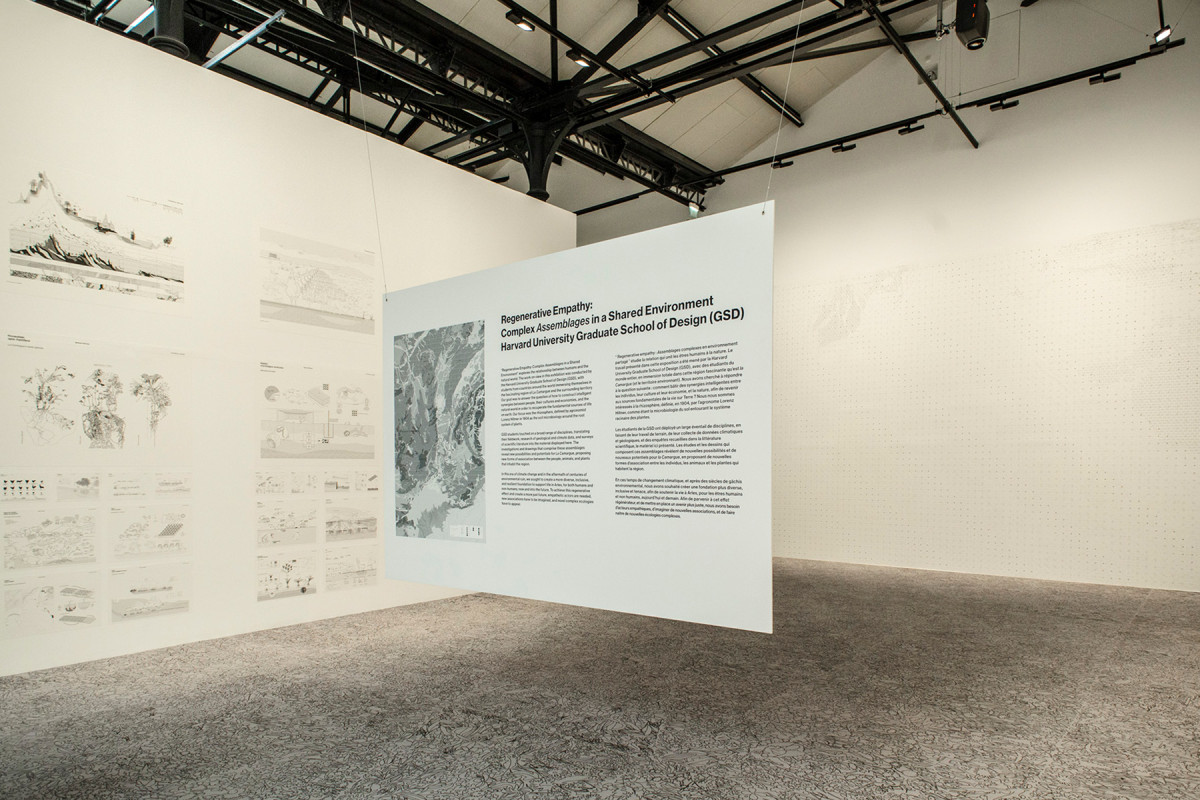
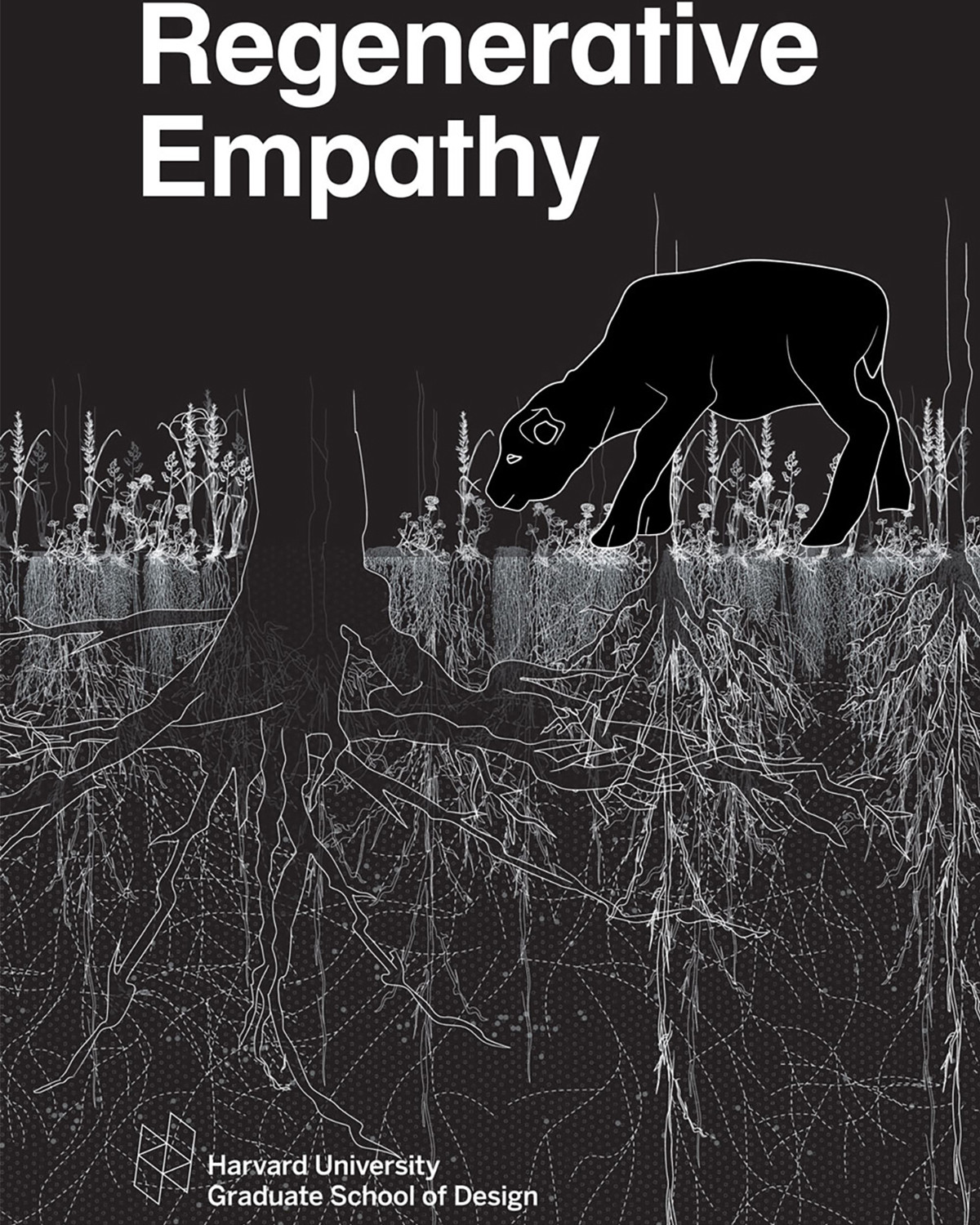
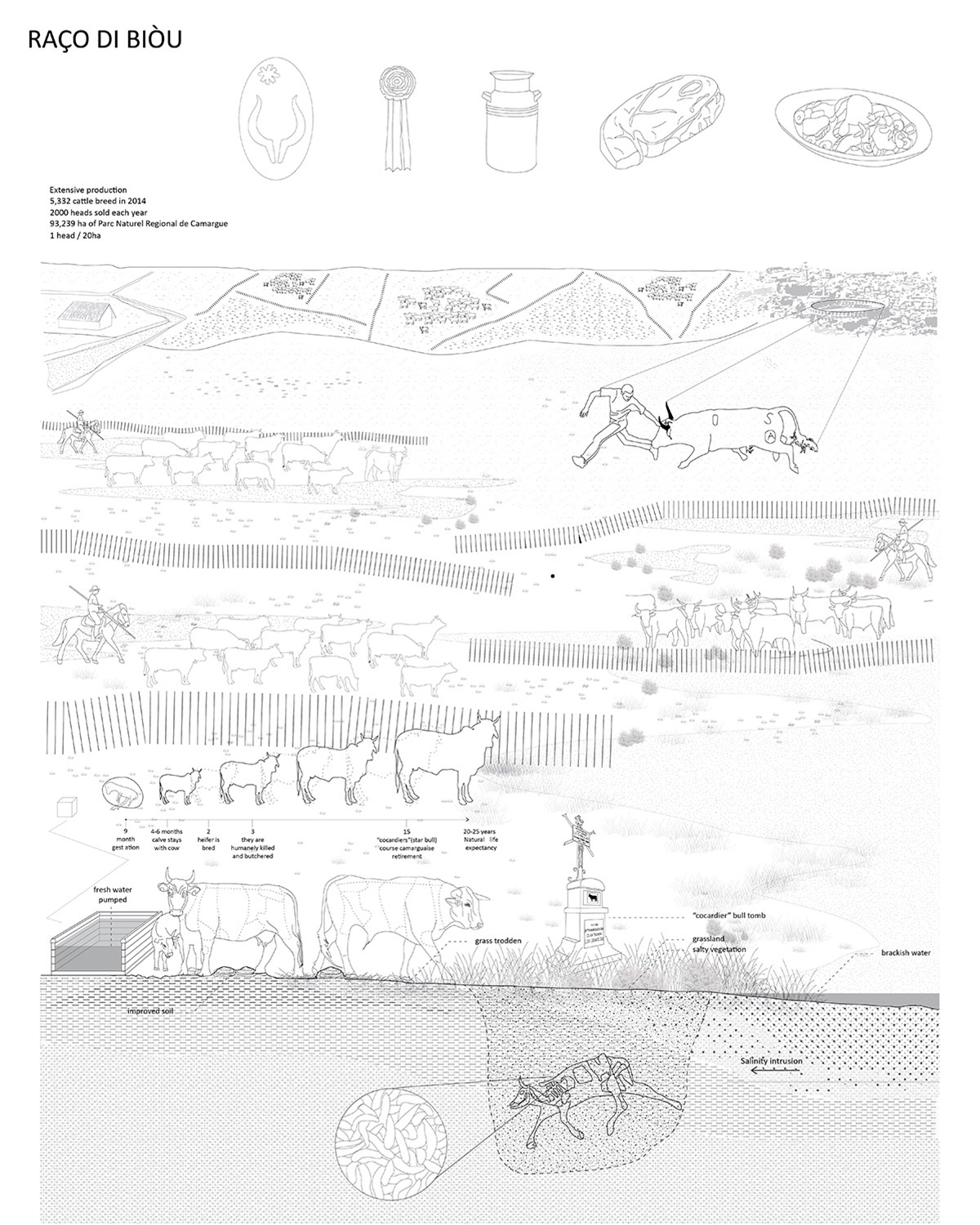
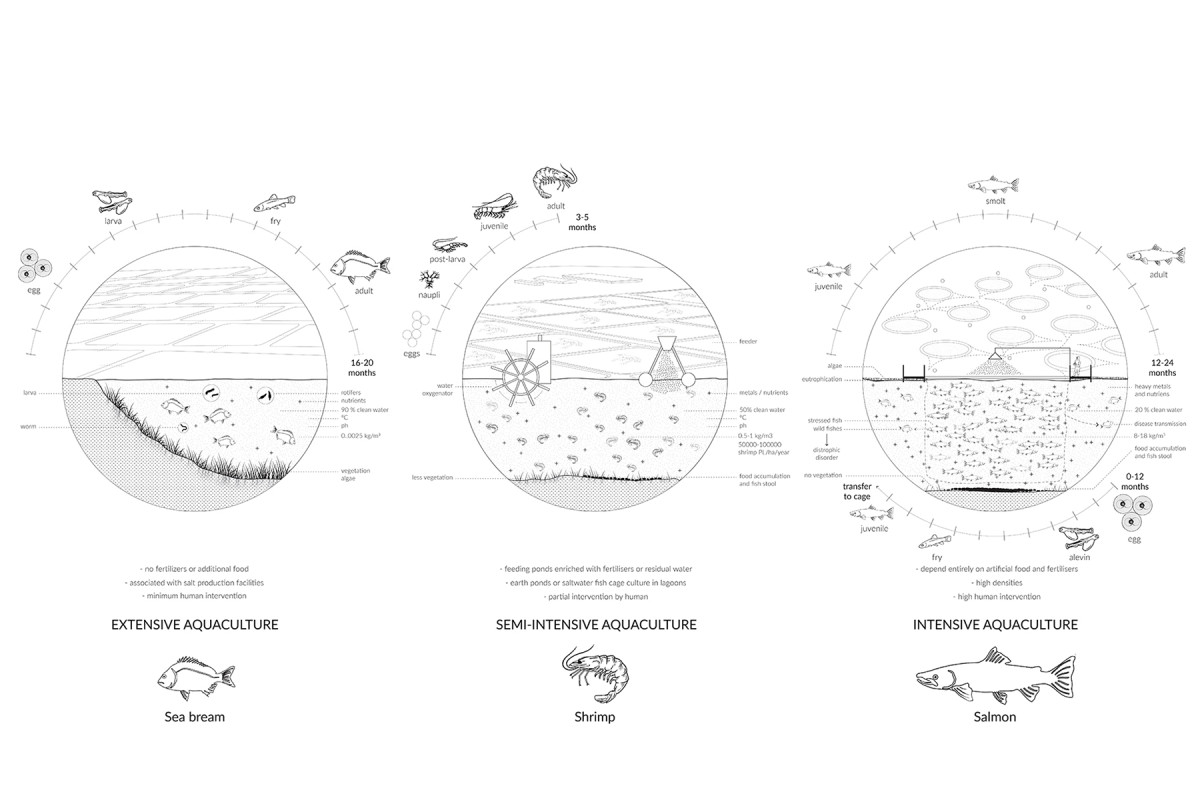
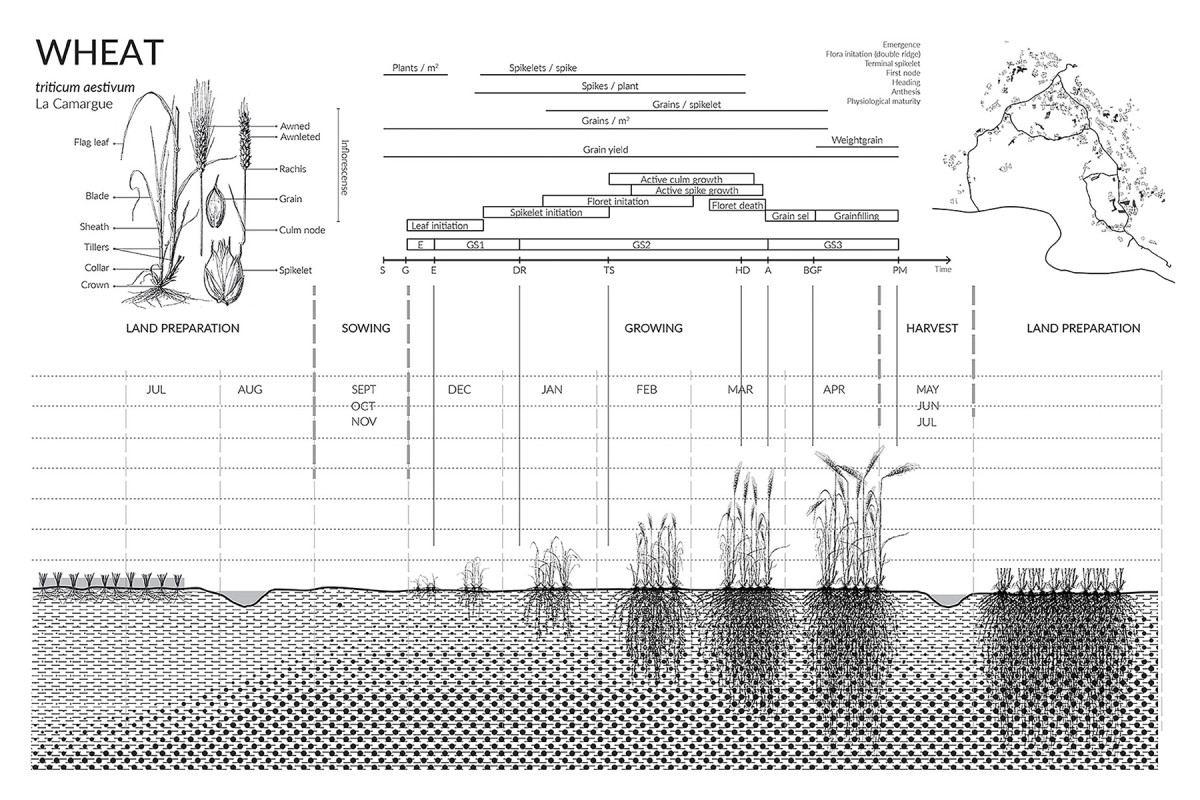
Regenerative Empathy is a research project that explores the relationship between human beings and the natural world, with the aim of building intelligent synergies between people, cultures, economies, and ecosystems. Its purpose is to recover the fundamental sources of life on Earth and propose new connections between social and ecological systems.
The projects featured in this exhibition and report span multiple disciplines. Based on fieldwork, geological and climate data, food production research, and scientific literature review, students from Harvard University produced a series of drawings centered on the rhizosphere—a concept defined by agronomist Lorenz Hiltner in 1904 to describe the microbiology of the soil surrounding plant root systems. These investigations reveal new possibilities of assemblage for the landscape of La Camargue, in France, proposing innovative forms of association among the people, animals, and plants that inhabit the region.
In a context of global climate crisis and centuries of environmental degradation, the project proposes a diverse, inclusive, and resilient foundation to support life in Arles, both human and non-human, now and into the future. Achieving a truly regenerative effect calls for empathetic actors, new ways of imagining cooperation, and the emergence of complex ecologies that integrate multiple forms of life.
Regenerative Empathy is the outcome of the Fall 2018 studio at the Harvard Graduate School of Design, developed within the “Rhizosphere” option studio led by Teresa Galí-Izard, with the generous support of Maja Hoffmann and the LUMA Foundation.